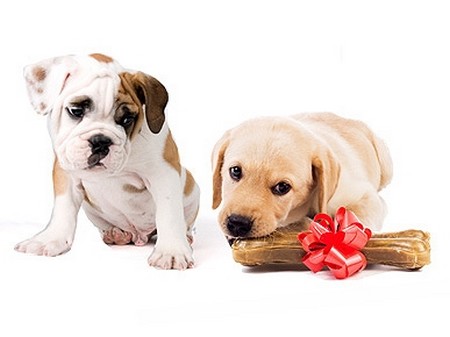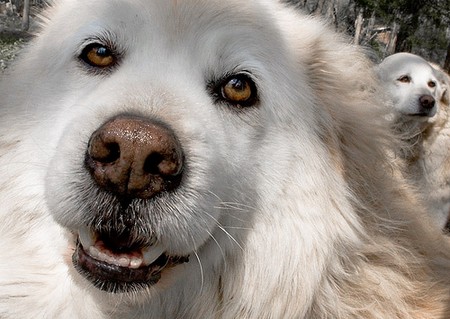Jealousy
Dogs may react with jealousy to changes in your personal world.
Symptoms
(A) The dog becomes aggressive. The dog growls and tries to interfere with the person whom the animal considers an intruder. It will do anything to defend the way things were before when its place in the hierarchy was not challenged.
(B)The dog persists in drawing attention to itself by asking to play, by being over affectionate, or, finally, by beginning to chew on itself.
(C)The dog starts to behave obstinately, and it might defecate or urinate inside the house, despite the fact that it has always been house-broken.
(D) The dog acts offended. It refuses food and, hides in a corner.
Causes
All of the above cited symptoms have the same cause. The dog is jealous because it has to share your affection or attention. This could be caused by a friend, a baby, a spouse, or even by an object.
Self-Help
Give your pet as much attention as you did before the change occurred, and find ways to reassure the animal that it has retained your love.
Talk to your dog as much as you can. This will give the animal a feeling of being included, and it will adapt more easily to the new situation.
- Bach Flowers
Bach Flowers are uniquely suited for the purpose of balancing a disturbed psyche.
Remember to use consistency in your training efforts.
When to Consult a Veterinarian
Make an appointment if your dog’s behavior has not responded to Bach flowers within three weeks.
Homesickness
Symptoms
(A) The animal whines, becomes aggressive, or tears up toys or other objects.
(B)The dog retreats and appears depressed. It refuses food and is unresponsive to enticements.
(C) The normally housebroken animal defecates or urinates inside the house. If this behavior continues without treatment, the dog may become so sick psychologically that it will mutilate itself by chewing through its skin and creating serious self-injury.
Causes
The most common cause for homesickness in young dogs is the separation anxiety caused by weaning and relocation away from its family pack.
In adult dogs homesickness occurs most frequently when their master is away from home for a prolonged absence. Some dogs do not adjust well to their temporary homes, be that a friend’s house, a dog motel, or your relative’s apartment.
Self-Help
- Home Remedies
Administer ignition ampoules orally.
- Bach Flowers
Use Rescue drops if the puppy is being separated from its mother. If the dog is aggressive, give it holly, and if your pet appears sad, mustard and hornbeam are indicated. Obstinate behavior should be treated with vine, and if the dog is craving attention, treat it with heather.
When to Consult a Veterinarian
If, the animal continues to refuse food and becomes unhappy, you need to get professional advice in order to avoid the development of serious organic disorders.
What to Expect
Homeopathic remedies will be selected that will restabifizea psychological imbalance.
Preventive and Convalescent Care
Before you leave for a prolonged absence it would be best if you could get your dog well-familiarized with its temporary caretakers and environment This will create the necessary trust and reassurance.
If your problem child is a new puppy, you should spend as much time together as possible, especially during the first week. Only close contact and reassurance will help the little fellow over its painful separation.

